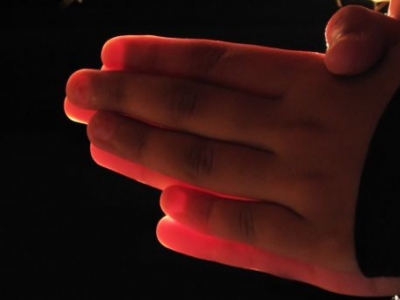How many children should I have?
Three things to prayerfully consider when it comes to family planning
Did you ever hear a friend’s good news, see the bump and feel a twinge of envy? Or see a newborn and sigh, remembering the peaceful bliss of holding a sleeping infant? Deciding how many children to have is a minefield of emotion, desire, rational and irrational reasoning. How can we possibly make the right decision about whether or not to try for another baby?
There are some questions that have a Category One answer; they are either right or wrong. It’s wrong to steal. It’s wrong to kill. It’s right to tell the truth. Some questions belong to another category: they are wise or foolish. It’s foolish not to study before an important exam. It’s not wrong, but it will probably lead to less than desirable results.
Still other questions belong to a third category: what works for you and what works for me. These are often small choices like choosing to eat gluten-free bread or ‘normal’ bread. For my mum, gluten-free is definitely the better choice, but that is not for everyone and that is ok. I’m sure you can think of many examples of times when our world gets these categories muddled, even to the point to denying there is such a thing as absolute right or wrong. But we have God’s Word and His Spirit to guide us to understand and live as we were made to live.
Deciding how many children to have within a marriage relationship fits into this third category. It is not a matter of right or wrong. Wisdom will come into it for sure, but the decision to have another child or not will be different for different couples. Here are a few things to remember if you’re facing this kind of decision:
What kind of family do you want?
Every family is different, but there are commonalities amongst big families (let’s say three or more kids) and small families. In big families, kids often learn to help one another more and be more independent because parental attention and energy is spread more thinly. In small families, children have more time and attention with parents but less interaction with siblings (simply because there are less of them). Yes, there are always exceptions to the rule but they are exceptions for a reason. Think about what kind of family life you want. Look at the families around you and see what they do and don’t do. Often big families do less ‘extra curricula’ activities like sport or music. Often small families travel more.
What can you and your marriage cope with?
One friend and her husband decided not to have a third because she battles anxiety and did not feel she could handle the strain another child would add.
Think of your marriage. Do you share the load well? Or does one person need to hold it all together because the other is away for work or for health reasons? How will the stress lines in your marriage be tested by more children? Sometimes answering these questions requires us to honestly face our weaknesses and vulnerabilities.
Our pride can be hurt by the realisation that having another child may be too much for us, while another couple seem to handle it easily. Our choice might also be influenced by how many children our spouse wants. How much each partner works or wants to work outside the home is also an important consideration.
Pray, it’s really all in God’s hands anyway
It’s all very well to think through the complications and implications of how many children we would like to have, but it really is not up to us in the end.
We can take the right vitamins, get fit and eat healthily but conception is a gift of God. A baby is a gift, not only to parents but to the extended family and community. While you may choose to ask God for that baby-shaped blessing, remember He knows best and gives all good things wisely and in his timing. Pray for his wisdom in making choices for your family, and keep trusting in Him to direct your path.
For more articles from Growing Faith, subscribe to our monthly e-newsletter.
To hear about the latest books and resources from Youthworks Media, subscribe here.






